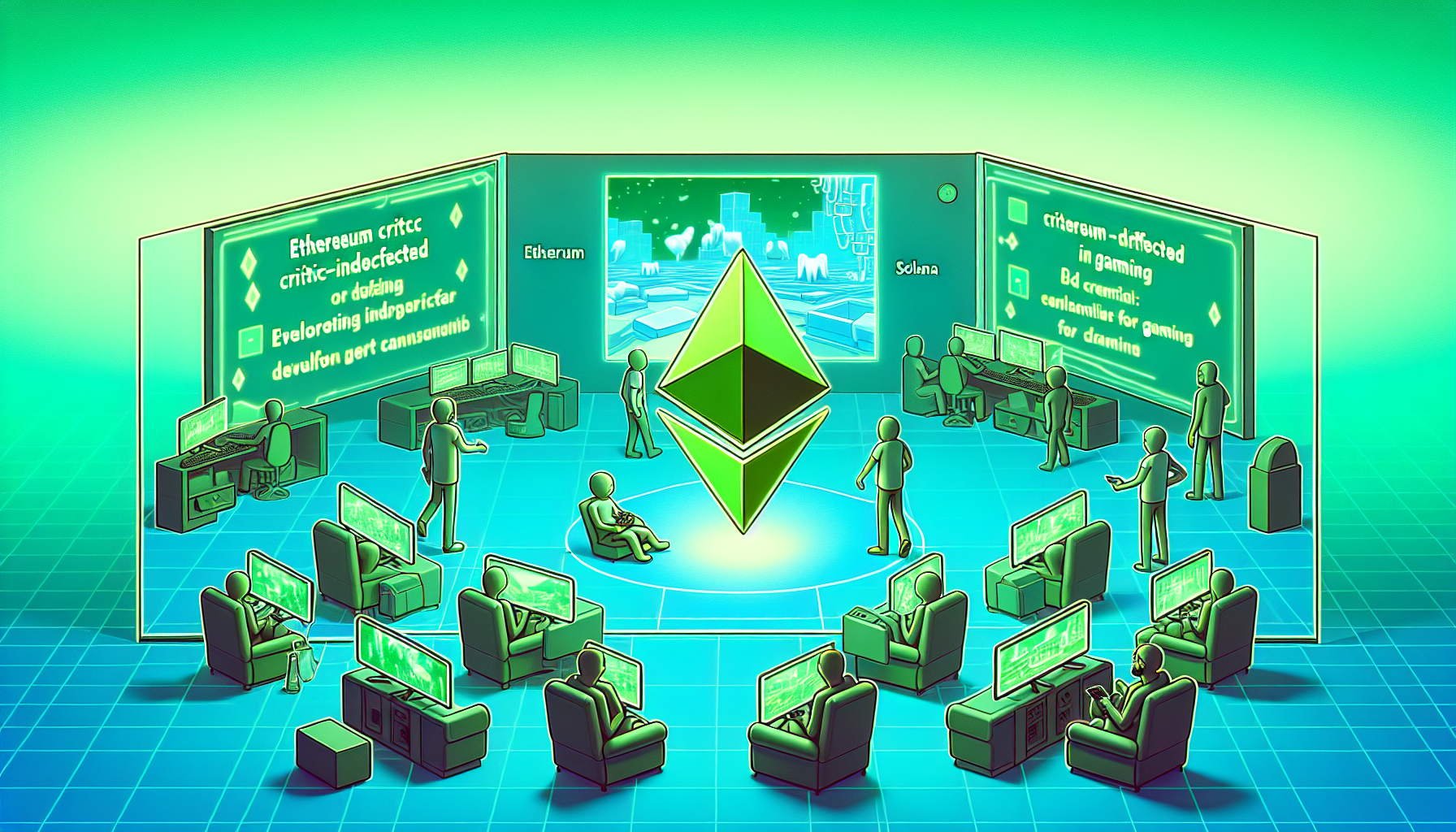Infected developers criticized Ethereum scaling and announced Solana will host future games.
Why it matters
- The migration of developers from Ethereum to Solana highlights critical issues within Ethereum’s scalability, potentially affecting its long-term viability as a gaming platform.
- Solana's ability to handle higher transaction throughput may attract more developers and projects, increasing its competitive edge in the blockchain gaming space.
- This move underscores the importance of addressing network congestion in blockchain ecosystems to facilitate a smoother user experience and foster innovation.
In a striking move that signifies growing frustrations with Ethereum’s performance, the team behind the popular simulation game Infected has announced their decision to transition their project to the Solana blockchain. This shift comes in light of ongoing challenges related to transaction speeds and network bottlenecks that have plagued Ethereum, particularly during periods of heightened activity.
Ethereum, once heralded as the gold standard for decentralized applications and smart contracts, has recently been criticized for its inability to scale effectively. The network has faced significant congestion issues, leading to slow transaction times and soaring gas fees that have made it increasingly difficult for developers to create and maintain applications, especially in the fast-paced gaming sector. The developers of Infected voiced their concerns, noting that the Ethereum network's performance was hindering their ability to deliver a seamless gaming experience.
The game's creators expressed their frustrations in a public statement, emphasizing that the limitations imposed by Ethereum's current infrastructure were detrimental to their vision. They pointed to the high transaction costs and delays, which have impeded user engagement and overall gameplay experience. As a result, the team felt compelled to seek a more efficient platform that could support their ambitious plans for growth and innovation.
Solana presents a compelling alternative for the Infected team, boasting significantly higher throughput and lower transaction costs compared to Ethereum. This blockchain is designed to support high-performance applications, making it an attractive option for developers looking to avoid the pitfalls of congestion and excessive fees. The Infected developers are optimistic that moving to Solana will not only enhance gameplay but also allow for richer user interactions and community engagement.
As the gaming industry increasingly embraces blockchain technology, the ability to process transactions quickly and affordably becomes crucial. Developers are continually seeking platforms that provide the necessary support for their projects while offering users a positive experience. The decision by Infected to switch to Solana could set a precedent for other developers who are facing similar hurdles on Ethereum, particularly as the demand for blockchain-based games continues to rise.
The migration of Infected is also indicative of a broader trend in the crypto space, where developers are reevaluating their options in light of Ethereum's ongoing scaling challenges. Several projects have already made the leap to alternative blockchains, seeking out networks that can accommodate their needs without the drawbacks associated with Ethereum’s congestion.
Moreover, this shift underscores the urgency for Ethereum to address its scalability issues. While the network has plans for upgrades, including the transition to Ethereum 2.0, developers are increasingly unwilling to wait for improvements that may take time to materialize. In the fast-evolving world of blockchain technology, opportunities can be fleeting, and projects need to adapt rapidly to remain competitive.
The impact of Infected’s transition to Solana may resonate beyond their individual game. As more developers consider similar moves, it could lead to a significant redistribution of projects across different blockchains, which would reshape the landscape of blockchain gaming. Solana’s ability to attract and retain these developers could solidify its position as a leading platform in the gaming sector, challenging Ethereum’s dominance.
In conclusion, the Infected developers’ decision to move to Solana is a clear signal of the pressing need for blockchain platforms to deliver on scalability and efficiency. As the gaming industry continues to innovate and grow, the ability to provide a seamless user experience will be paramount, and platforms that fail to meet these demands may find themselves at a disadvantage in the competitive landscape of blockchain gaming.
















